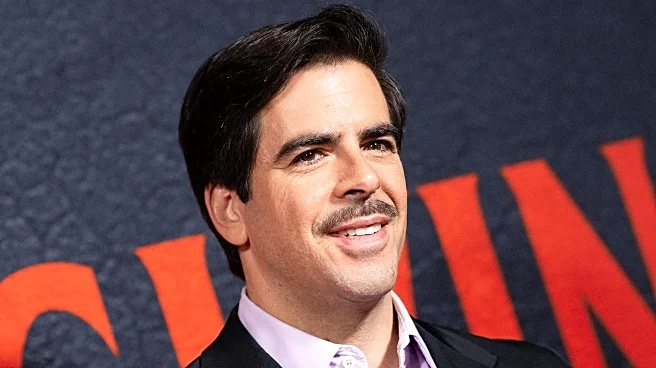What's Happening?
The largest cuts to the Supplemental Nutrition Assistance Program (SNAP) in U.S. history are taking effect, following President Trump's signing of the One Big Beautiful Bill Act. Effective October 1, 2025, funding for SNAP-Ed, which supports food banks across the U.S., is being eliminated. This move is part of a broader spending bill aimed at reducing government expenditure. According to the Center on Budget and Policy Priorities, approximately 4 million Americans will lose some or all of their SNAP benefits monthly as the cuts are fully implemented. The cuts coincide with rising food prices, exacerbated by tariffs and labor shortages in the food industry due to Trump's immigration policies. Food banks are struggling to meet demand, with some experiencing a 20% increase in people seeking assistance. The Trump administration has also canceled the annual hunger survey, which tracks food insecurity, further complicating efforts to address hunger in the U.S.
Why It's Important?
The SNAP cuts are significant as they directly affect millions of low-income families who rely on food assistance to meet their nutritional needs. The reduction in benefits comes at a time when food prices are rising, making it increasingly difficult for families to afford groceries. This policy change could lead to increased food insecurity and hunger across the nation, impacting public health and economic stability. The cancellation of the hunger survey by the USDA suggests a shift in priorities away from addressing food insecurity, potentially leading to a lack of data-driven policy decisions. The cuts also place additional financial burdens on states, which are now expected to share the costs of SNAP and cover more administrative expenses, potentially straining state budgets.
What's Next?
States will need to adjust to the new financial responsibilities associated with SNAP, potentially leading to budget reallocations or cuts in other areas. Food banks and social service organizations may face increased demand and pressure to fill the gap left by reduced SNAP benefits. Advocacy groups and policymakers may push for legislative changes to restore funding or mitigate the impact of the cuts. The ongoing rise in food prices and tariffs could further exacerbate the situation, prompting calls for policy revisions or new initiatives to address food insecurity.
Beyond the Headlines
The SNAP cuts highlight broader issues of economic inequality and the challenges faced by low-income families in the U.S. The policy shift may lead to increased scrutiny of government priorities and spending, particularly in areas affecting vulnerable populations. The decision to cancel the hunger survey raises ethical concerns about transparency and accountability in government actions, potentially sparking debates about the role of data in shaping public policy.










